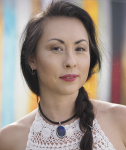WSJ and Darkness Too Visible #YASaves
OMG. I just logged into Twitter to find a flurry of #YASaves tweets. Not knowing what all the hubub was about, I clicked. Dear lord. It seems every time I make a post, something very similar is going on in the world around me of which I’m completely unaware.
I hate that. Especially since my last post could easily be construed as being supportive of the WSJ attitude. Let me clarify that it absolutely is not. I think it’s awesome that hard topics are explored. The dark doesn’t bother me, nor should it be avoided. And the WSJ’s idea that this is something totally new is crazy. It’s not. Incest, death, violence, suicide, etc. are themes in many books older than I am.
WSJ really made me wish I hadn’t even posted that blog yesterday, because now I feel like I have to take it all back.
I don’t think it’s necessary to have gratuitous sex and language, but that doesn’t mean that I don’t think there is a place for sex and language in YA. I very much do. I think that how it is handled is what separates it as a genre. Sometimes it does require a bit more grit than normal. But for the most part, it can be done superbly without those things. I just like the idea of knowing what I’m getting. Otherwise I really don’t see a need to separate them. Most adults are reading YA, and most kids are reading fiction.
I think back to Neil Gaiman’s The Graveyard Book in which there were many complaints about the f-bomb in a book that was being marketed by some as MG. His response to that was that it was never meant to be MG. Just because it is about a kid doesn’t mean it is for a kid. And that’s kind of where I stand on the matter. It’s not that I object to the actual content or that kids are reading it.
And let’s just clear this up right now: appropriateness is going to vary by age, family views, and the like. Sex is not appropriate for a a 7 year old to be reading. No one is arguing that.
Kids are going to read what they are going to read unless parents are involved and controlling their decisions (good luck with that, by the way—that rarely works out well). My parents never monitored what I read, and I thank them for it, because it allowed me to discover what I like and what I enjoy reading, not what they wanted me to read. I read because I loved to read. And I read everything I could get my hands on and went on way more adventures than should be legal.
It didn’t change who I was or what I did. I was still me, and decisions I made, I made on my own, not because a movie, a video game, or a book made me think it was cool. If a kid is really like their parents, it’ll show. Their preferences will be toward the books the parents want them reading anyway. I knew when I was fourteen that my parents and I had very different views on life. It hasn’t changed. Give kids more credit. Kids aren’t stupid; stop treating them like they are and using them as an excuse to remove all things adults find unpleasant or unfit for human consumption.
Let’s face it, that’s really what it boils down to: getting rid of things a group of people find distasteful. They don’t just want to get rid of it with kids, that’s just the excuse for right now. If that were to ever be successful, it would eventually move on to adults.
I do tend to believe that we do have more violence today than we did, say, a hundred years ago. But I don’t think it has to do with games, books, music, or movies. I won’t get into what I think is the real problem here, but suffice it to say, it isn’t the fucking books people read.
It’s a lame excuse to say a book might trigger a relapse. Basically what that says is that no one, ever, should discuss these pathologies, as Mrs. Gurdon likes to call them. No movies, no talk shows, no nothing. Because hey, they might trigger relapse.
We should be sensitive to others. But we also can’t skirt issues.






No Comments